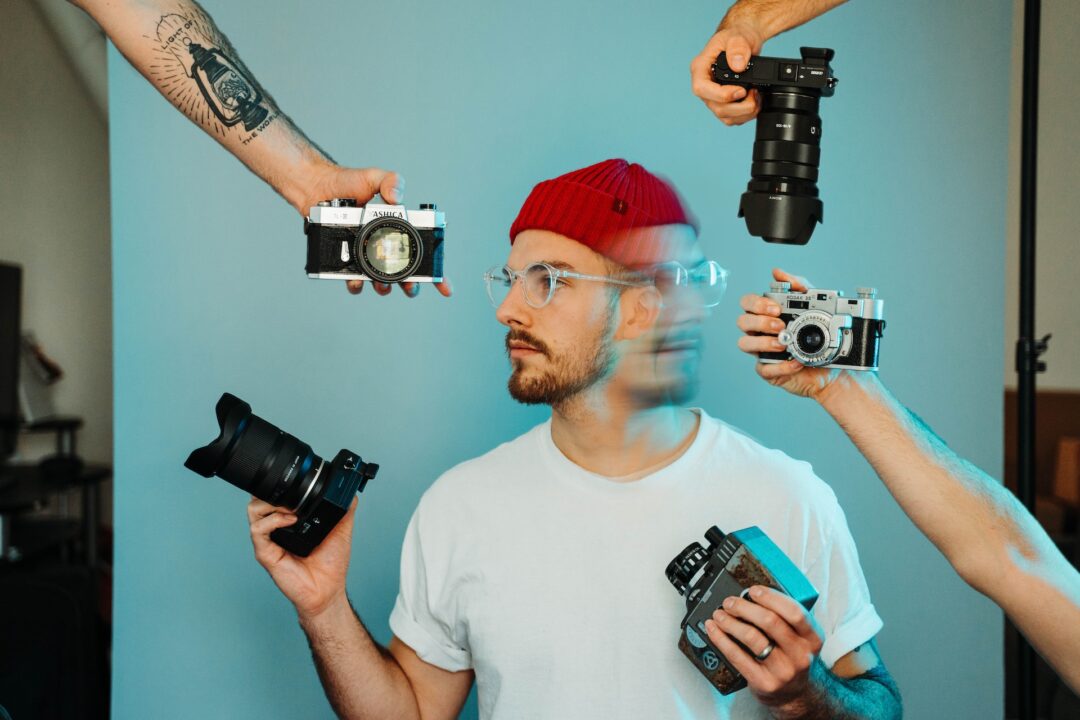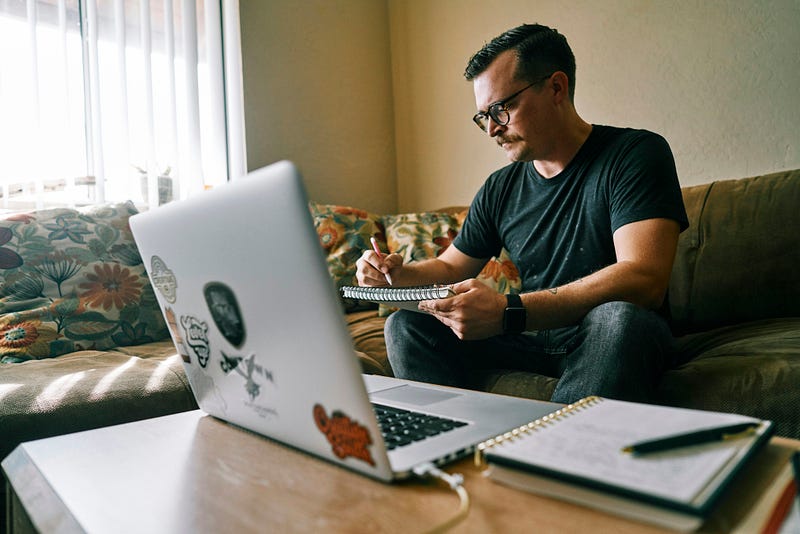As a writer and creator, it’s important to stay creative most hours of the day. But the truth is nobody can remain on the same creative level every day. There are days when your brain shuts down, and you don’t know how to move forward.
The feeling of being stuck, unable to move forward and find new ideas, is known as Creative Block. In writing, it is also called Writer’s Block.
All creators have faced it during their creative process. It’s entirely normal for this to happen. But it is not good if you feel stuck for a long time without identifying the steps to move forward. Further, it is not okay if it affects your mental well-being.
You can do some activities to increase your creativity and get focused. Whether you are a writer, painter, photographer, musician, or filmmaker, you can follow them and get your brain functioning again.
Sit quietly for a few minutes.
As cliché as it sounds, meditation is one of the best practices to reboot your creative brain. Quieting down your mind and focusing on the present moment allows you to reduce stress and stimulate creativity.
Most of my writing ideas come during my meditation session. I never think of them or stress about not having anything to write when I meditate. I close my eyes, focus on my breath, and embrace the present moment. The ideas flow to me when I do this.
If you have practiced meditation before, you know your mind is constantly bombarded with thoughts. You try to avoid them but can’t. These thoughts can bring new ideas and help you advance your creative journey. You must remain aware of your thoughts and learn how to capture them. Practicing meditation regularly can help you do that.
So, meditation is a habit you must incorporate into your daily routine. It also helps you boost your immune system, reduce stress, calm the mind, and become more self-aware.
Go for a walk.
Walking is my favorite creative habit. It helps me think better when I take an hour-long walk around my neighborhood. It is meditative.
Brisk walking increases blood flow to the brain, helps to clear the mind, boosts imagination, increases energy and motivation, and reduces stress and anxiety. Walking in the park or a place surrounded by nature is best.
Brisk walking is also good for your heart and mental health.
You can do other exercises if you don’t enjoy walking. For instance, you can do yoga, lift weights, dance, or run outdoors. Your creativity increases when you are constantly moving your body. Any form of exercise done regularly is appropriate for your overall well-being.
It’s also essential that you eat the right foods. What you consume has an impact on your body and brain. If you eat junk, you won’t feel good. Then, it reduces your creativity and makes you unproductive throughout the day. It’s recommended to eat a balanced diet filled with nutritional values. So, eat your veggies, get some protein, and drink plenty of water daily.
Write in your journal.
Journaling should also be a part of your daily routine. Writing down your thoughts, ideas, feelings, and goals is crucial to improve your life. It is one of the most powerful practices to help you create the life you want.
Journaling helps you set goals and track them. It accelerates your ability to manifest your desires. Further, it enables you to get more clear about your emotions. It gives you an idea of where you are and want to be. It is a practice that helps you constantly learn more.
As a creative person, journaling can help you record your ideas and identify new ones. Benjamin Hardy says that he became a writer through journaling. He writes in his journal every morning and evening. It allows him to generate tons of ideas for his articles and books.
Journaling can also help you document your life. It’s a good way for you and your children to find inspiration, as they can learn from your life experiences.
Keep the journaling process simple and effective. You can journal in any way that feels right to you. The goal should be to help you get better at your craft. Use journaling to set goals (daily, weekly, monthly, and yearly), track your progress, and become aware of your thoughts and emotions.
Be around creative people.
When creative block hits you, you must look for inspiration. The best way to do that is to be around other creative people. This can help you get inspired and motivated. Further, you might get new ideas for your creative work.
You can attend events, seminars, and workshops to meet like-minded people. Learn about their work. You might find a ton of inspiration and ideas there.
If you are an introvert or don’t want to meet people face to face, you can always watch videos and read about them. I like watching Youtube videos of other creators. It motivates me and helps me get back into the zone.
I prefer watching videos of Casey Neistat, Joe Rogan, Gary Vee, and Jordan Peterson. They aren’t all writers, but their work ethic, mindset, and determination motivate me to push harder and do more. I instantly feel pumped up after watching or listening to them.
I also like reading books and articles. I find many ideas and inspirations for my writing.
The internet will help you find many inspirational people. So, go meet people, watch inspiring videos, listen to podcasts, and read a lot. This will help you get out of your creative block and boost your creativity.
Try new things outside your comfort zone.
If you are a writer, you prefer to write in a distraction-free environment. If you are a painter, you want to work in your studio and get focused. Anything outside of your creative space, you feel uncomfortable and distracted.
When you are inside your space and experience a creative block, get out from there (physically). Yes, leave your room and try new things instead.
Ryan Holiday’s writing advice is to do exciting things and have something to say. You can’t be a good writer if you don’t have experience living and doing things in life. Traveling, meeting a friend for coffee, arguing with your spouse, attending a party, working out in the gym, etc., are all part of life. You must have such life experiences to learn and express them in your creative work.
The creative process is more about experiences and lessons rather than just creating. Trying new experiences and stepping outside your comfort zone can help to stimulate creativity and inspire new ideas.
Stop everything and take a break.
Bill Gates isolates himself for seven days twice a year. He calls it his Think Week. During the seven days, he spends his time reading books, newspaper articles, industry news, and reports. He disconnects from the outside world and remains wholly focused on himself. He has a caretaker to provide him with daily meals twice a day.
You don’t have to do what Bill does. But it is crucial to take a break from your work and focus on yourself. Maybe plan a vacation. Join a meditation (or yoga) retreat. Do anything that disconnects you from your daily tasks and helps you reboot your brain. As I said before, setting yourself in a new environment is best.
They say that the best creative ideas come to you when you are doing nothing.
Taking a break once in a while is essential because it helps you get re-focused. When you are in a new environment, you get new ideas. It gives you a mental reboot. Disconnecting helps in problem-solving and boosts creativity.
Get off social media. Don’t receive calls and messages unless they are urgent. Be in a new environment. Take a creative break. Set goals and plans. Reflect on your past goals. Look for new ideas. Read a lot. Meditate. Exercise. Get outdoors. Write in a journal. Be aware of your thoughts and emotions.
A creative break is a complete reset for your mind and work. After you return from the break, you will feel motivated and have more clarity about your work and goals in life.
Final thought
Creative work can be challenging. It can get frustrating, especially when you experience creative block more often. I’ve gone without writing for weeks because I lacked inspiration. No matter what I did, I wouldn’t get any ideas to write. The harder I tried to find inspiration, the further I went from it.
The best way is to let go. Do not focus on what isn’t happening and do other activities that excite you. Focus on self-improvement. Activities like exercise and meditation will improve your well-being. Journaling can help you organize your goals, ideas, and emotions.
Most importantly, have faith. Experiencing a bad couple of days doesn’t mean you are unworthy. Be patient and trust yourself. The good days will follow.




